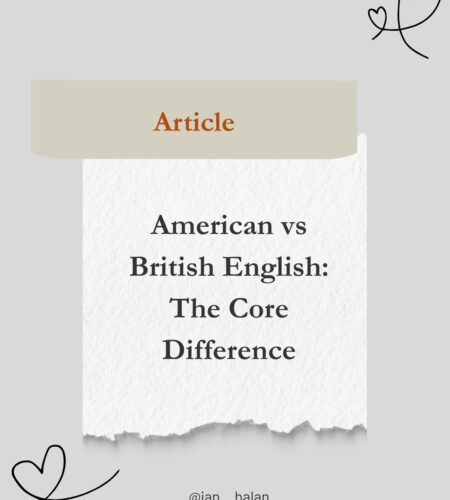“English is a funny language,” said George Bernard Shaw, and no one disagrees especially when it comes to spelling.
One of the most common and quietly controversial spelling confusions is the -ize vs -ise ending. Organize or organise? Realize or realise? Which is correct? The answer, as with many things in English, is: it depends. On where you are, who you’re writing for, and what rules you follow.
Let’s break this down, not as grammar snobs, but as curious language lovers, parents guiding young learners, or professionals aiming to write clearly. This isn’t just about spelling. It’s about identity, history, and the subtle power of communication.
American vs British English: The Core Difference
American English almost always prefers -ize. British English, on the other hand, often leans toward -ise. So, we get:
- American: organize, realize, recognize
- British: organise, realise, recognise

Simple, right? But wait. British English isn’t always consistent either.
Oxford University Press, a major authority on English usage, actually prefers -ize forms. So, if you’re reading The Times of London or The Guardian, you’ll see realise. But if you’re reading academic texts or dictionaries from Oxford, you might see realize.
Confused? You’re not alone.
The Historical Tug-of-War
Here’s a fascinating bit: -ize is not an American invention. It goes all the way back to Greek and Latin.
The original Greek suffix “-izein” made its way into Latin as “-izare,” and eventually into English. That makes -ize historically older and technically more accurate from an etymological point of view.
British English started using -ise more frequently in the 19th and 20th centuries. It looked more French. It felt more British. So, it stuck, at least in the newspapers and public schools.
Americans, led by reformers like Noah Webster, doubled down on -ize to streamline and simplify spelling across the board.
Which Should You Use?
The answer depends on your audience, your purpose, and your location.
- Writing for American readers? Always go with -ize.
- Targeting a British audience? -ise will feel more natural and culturally appropriate.
- Academic writing? Check the style guide. Oxford style prefers -ize, but many journals and universities follow the -ise convention.
The most important rule? Be consistent. Don’t switch between organise and recognize in the same document. That inconsistency can make your writing look unpolished or worse, careless.
What About Spellcheck?
You’d think technology would make this easier. It doesn’t always.
If your document is set to U.S. English, it will flag realise as incorrect. If it’s set to U.K. English, it’ll flag realize. So, double-check your language settings before you begin writing, especially if you’re preparing content for school assignments, job applications, or client presentations.
And parents, here’s a tip: teach your children both versions early on. It’s an easy way to develop flexibility and sharpen editing skills.
Words That Must End in -ise (Everywhere!)
Now here’s a twist: some words are always -ise, no matter the variety of English. Why? Because they’re not derived from Greek or Latin roots. They come from French or other languages.
Examples include:
- advertise
- compromise
- surprise
- revise
These are fixed. You won’t find “advertize” in any professional writing, American or British. Knowing this helps build confidence. When you know why a rule exists, it sticks.
How to Teach or Learn the Rule
Whether you’re a parent helping with homework or a professional proofreading your blog post, here are a few quick tips:
- Decide your English variety at the start. Set your spellchecker accordingly.
- Make a list of common -ize/-ise words you use often. Keep it on hand.
- Practice consistency. Highlight all such words in a draft and make sure the endings match.
- Explain the origin to young learners—it’s fascinating and helps memory.
- Use reading to reinforce spelling. If your child reads more American books, -ize will seem natural. If they read British literature, -ise will dominate.
Final Thoughts: More Than Just Letters
You may think it’s a small detail—just two letters. But language has power. The endings we choose tell a story. They reflect where we come from, what we value, and how much care we put into our words.
So, whether you write “organise” or “organize,” remember this: it’s not about which one is right or wrong. It’s about choosing wisely, using consciously, and writing with intention.
Language is fluid. But clarity? That never goes out of style.
To buy my book, Story of the Storey
To read about the gift I gave my father
Subscribe to our email newsletter to get the latest posts delivered right to your email.

Comments